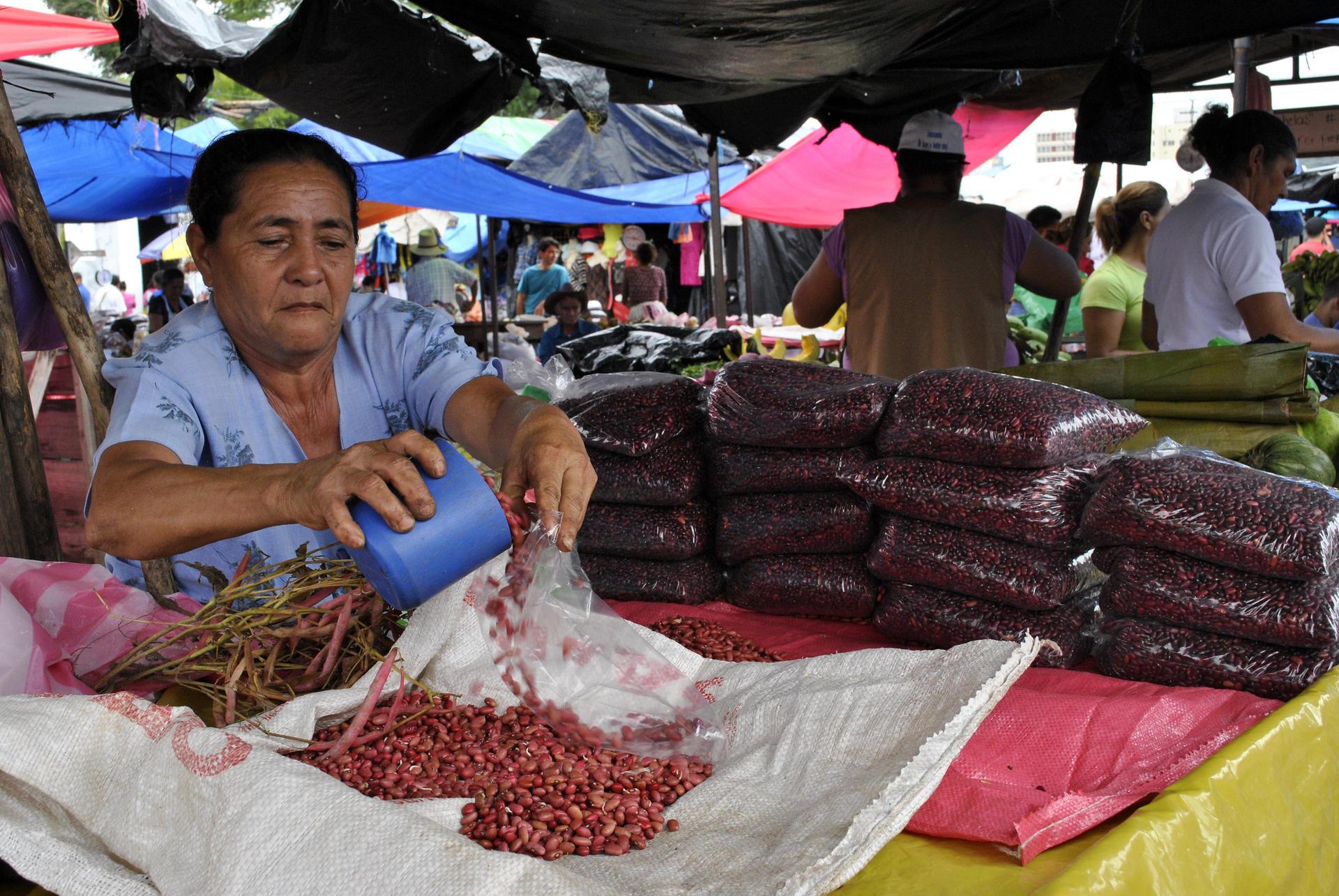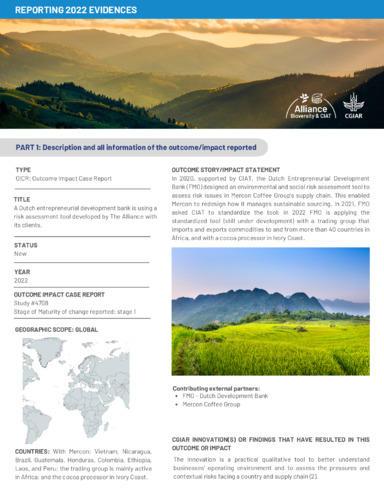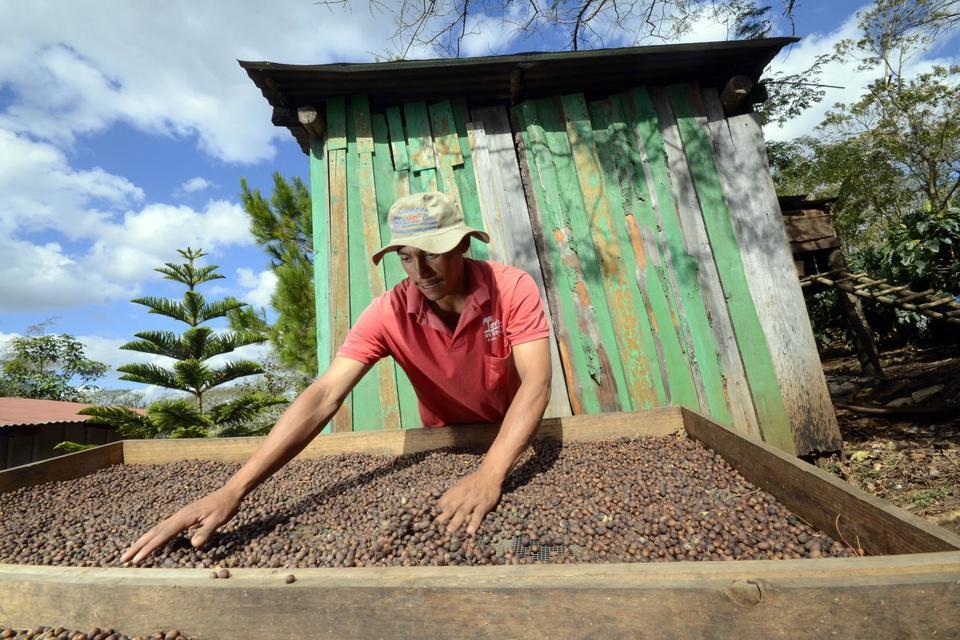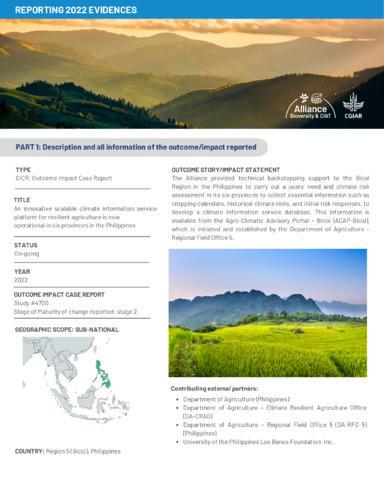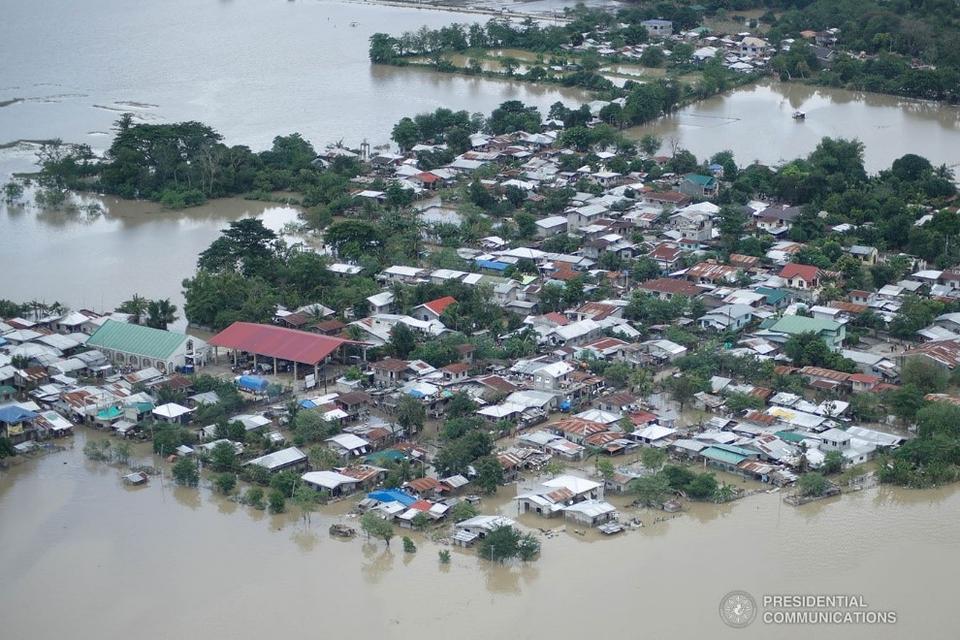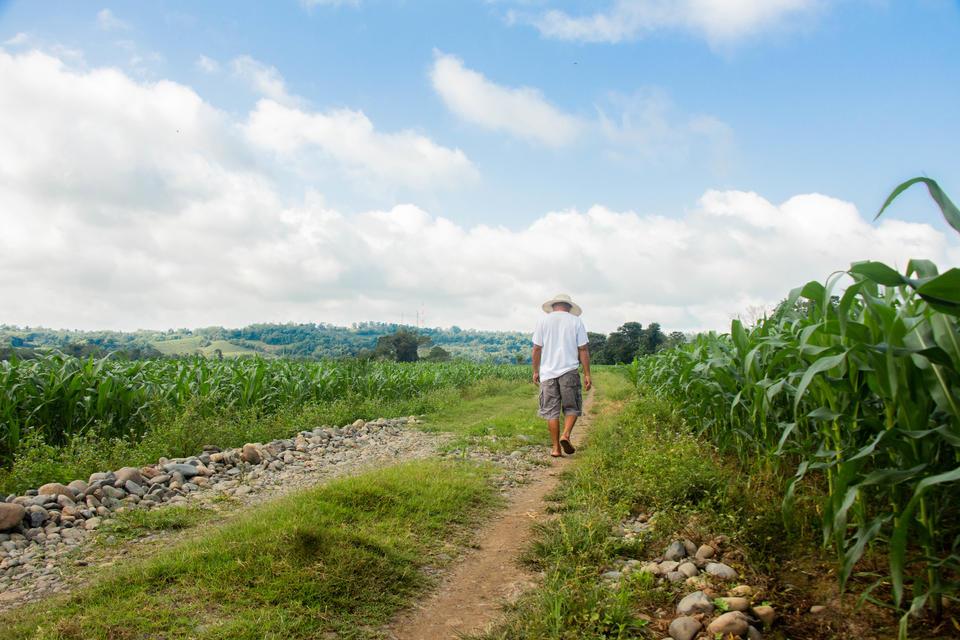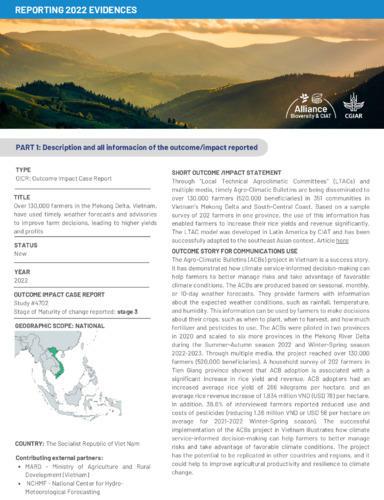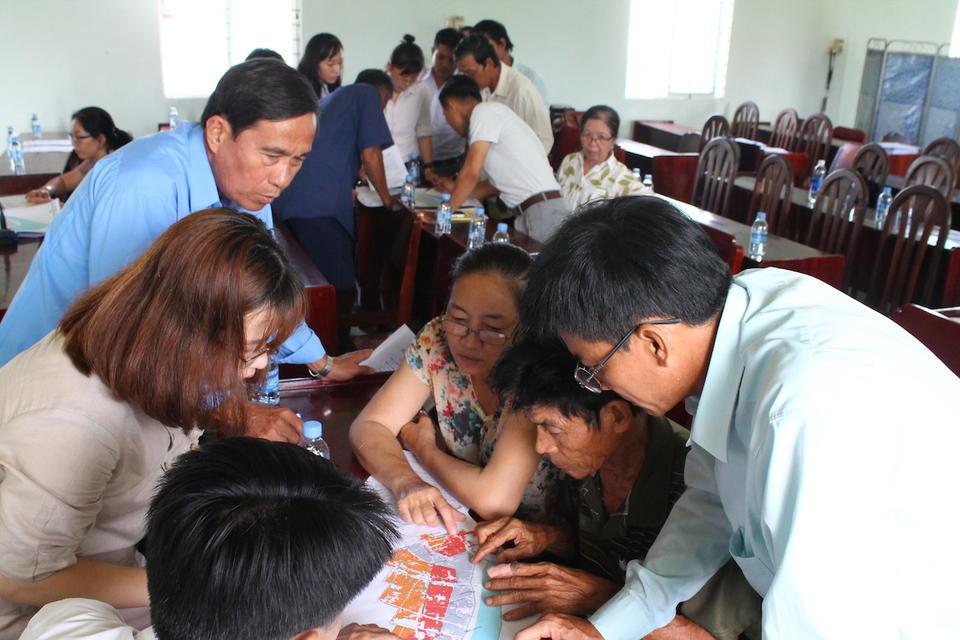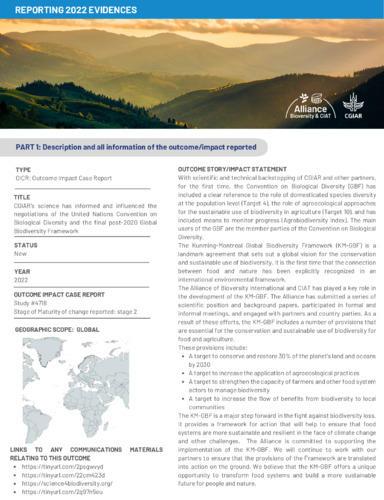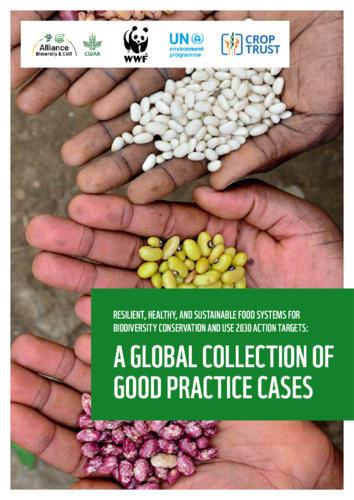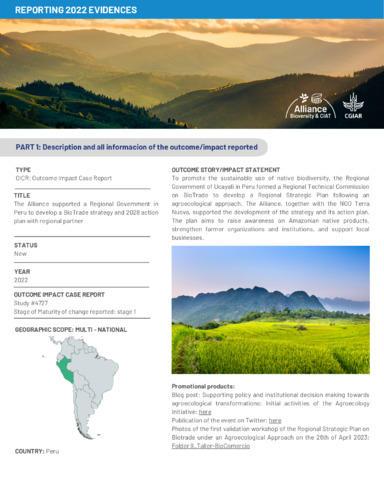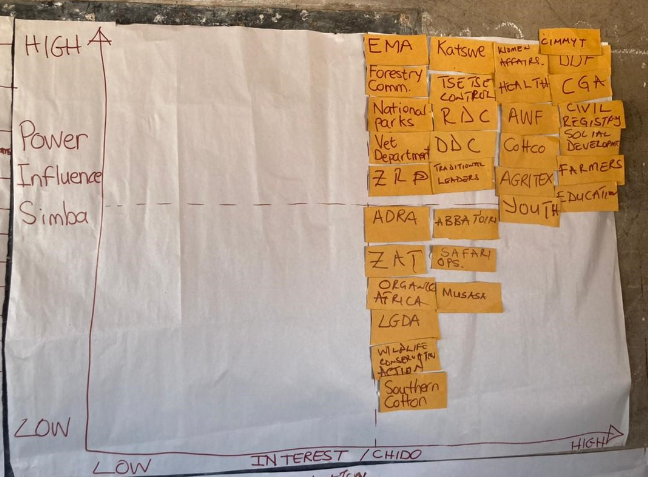Impact story Tracking stories of change: Alliance case studies from the Philippines to Peru
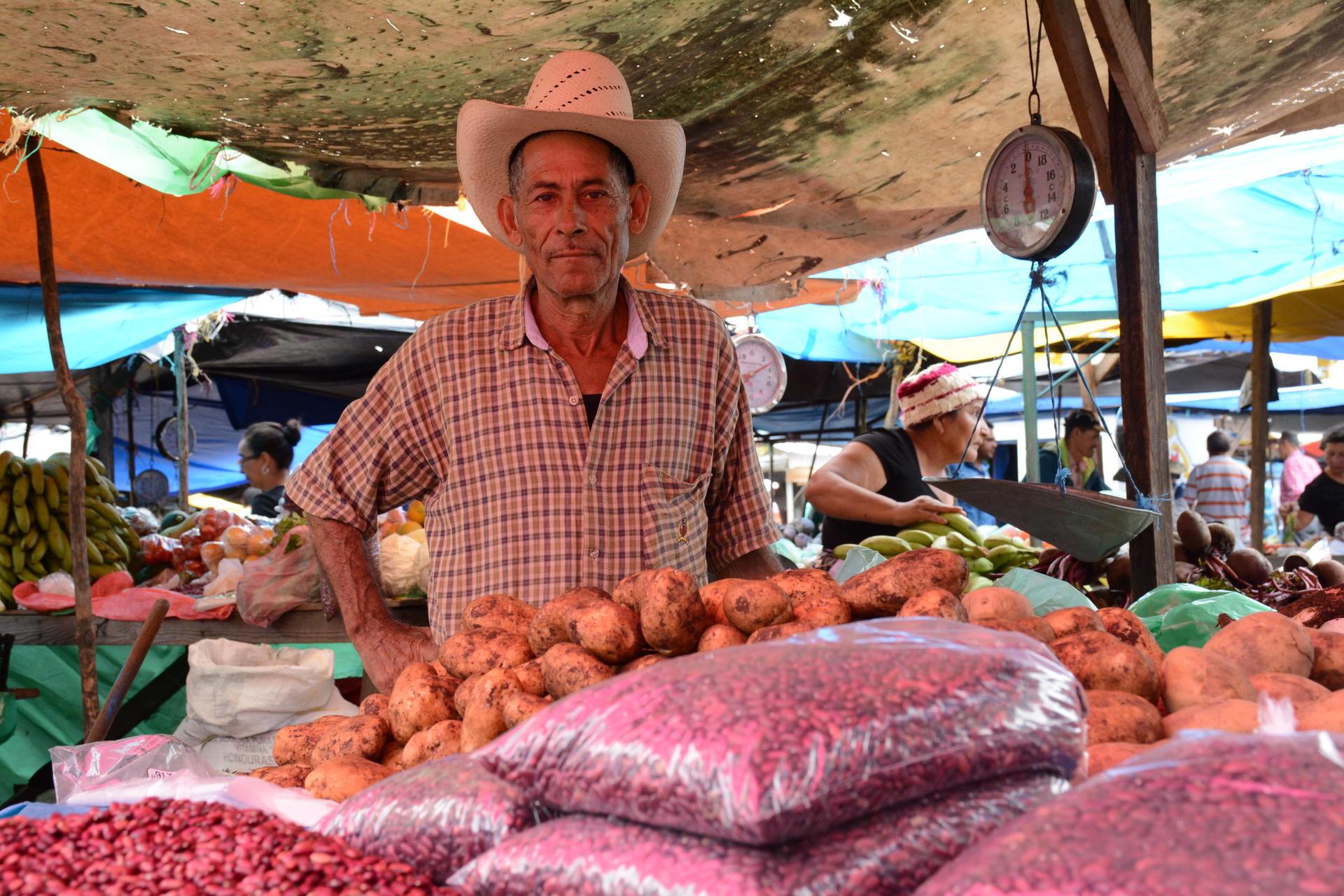
Each year, Alliance scientists submit case reports outlining pathways to impact for communities, institutions, and policy. Below, we invite you to explore the main types of innovations, with examples:
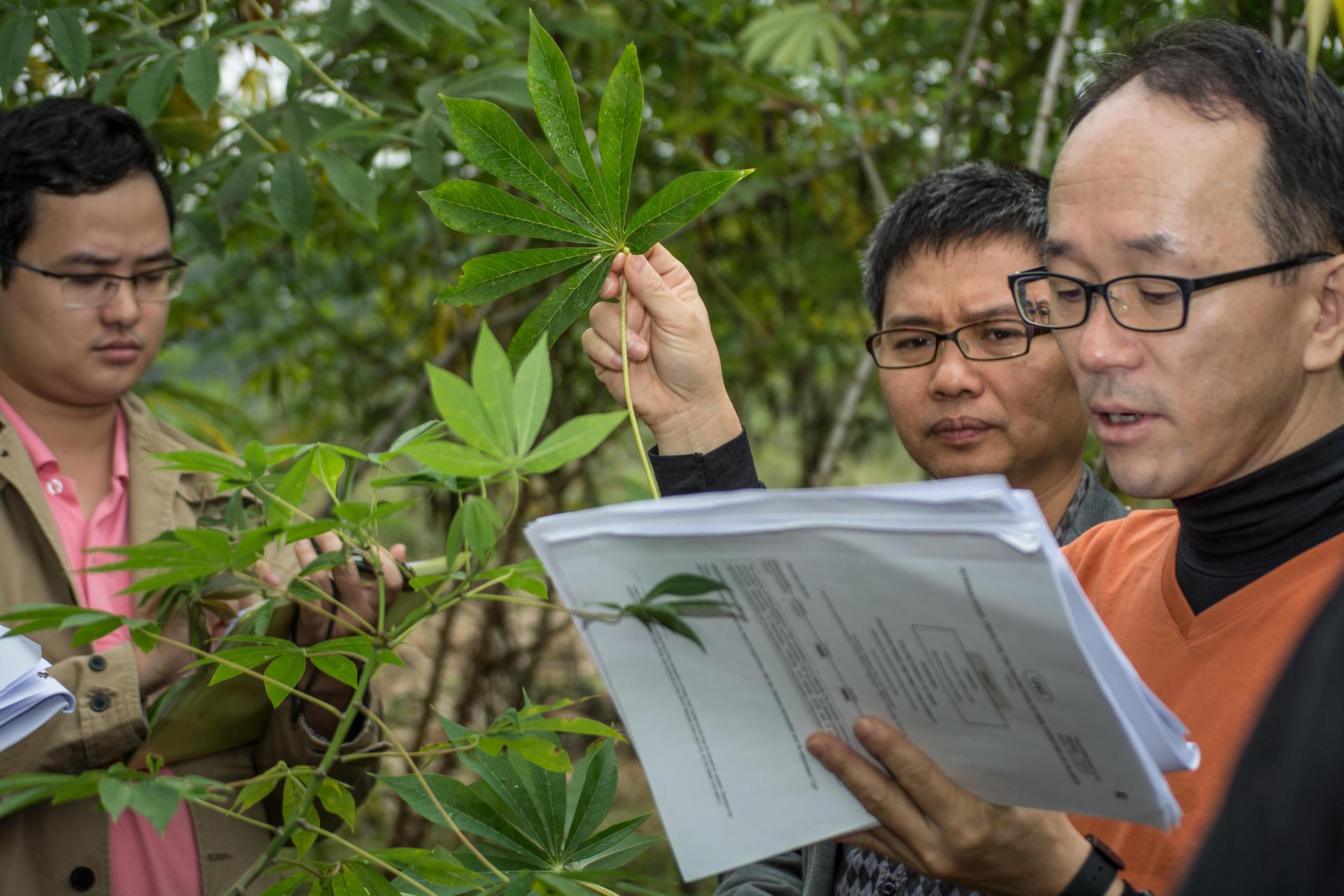
-
New crop varieties: The Alliance is working with farmers to develop varieties that are more tolerant of drought and heat, and able to produce higher yields under challenging climatic conditions in countries such as Guatemala, Cambodia and Vietnam.
-
New agricultural practices and techniques: Precision agriculture uses satellite imagery and other technologies to help farmers target their inputs more precisely, which can lead to increased yields and reduced environmental impact.
-
New technological innovations: New irrigation systems use less water and help conserve water, and new fertilizers are more efficient and less polluting; both help to improve crop yields while reducing the environmental impact of agriculture.
-
New business and market models: Contract farming can help farmers earn a fair price for their crops and reduce risks, while e-commerce can help farmers reach new markets and improve their livelihoods.
We recognize that these innovations only yield benefits for end users if they are actively adopted and adapted to real-world scenarios. Half of our successes come from partnerships with Governmental Organizations, farmers, and private enterprises. Our diverse network, including community-based organizations, global entities, and government bodies, plays a vital role in addressing food security, nutrition, and climate change for impactful outcomes.
Explore how we are influencing multi-level food systems change with these recently released case studies:
INSTITUTIONAL CASE STUDY: A tool to measure risk
With the Dutch Entrepreneurial Development Bank (FMO), Alliance researchers designed an environmental and social risk assessment tool, which supports companies to analyze the impacts of sourcing practices on different social groups including workers, landowners, ethnic groups, children/youth and women. When applied to Mercon Coffee Group’s supply chain, the tool allowed the company to redesign how it manages sustainable sourcing.
Submitted by

Jenny Wiegel
Americas Lead, Food Environment and Consumer Behavior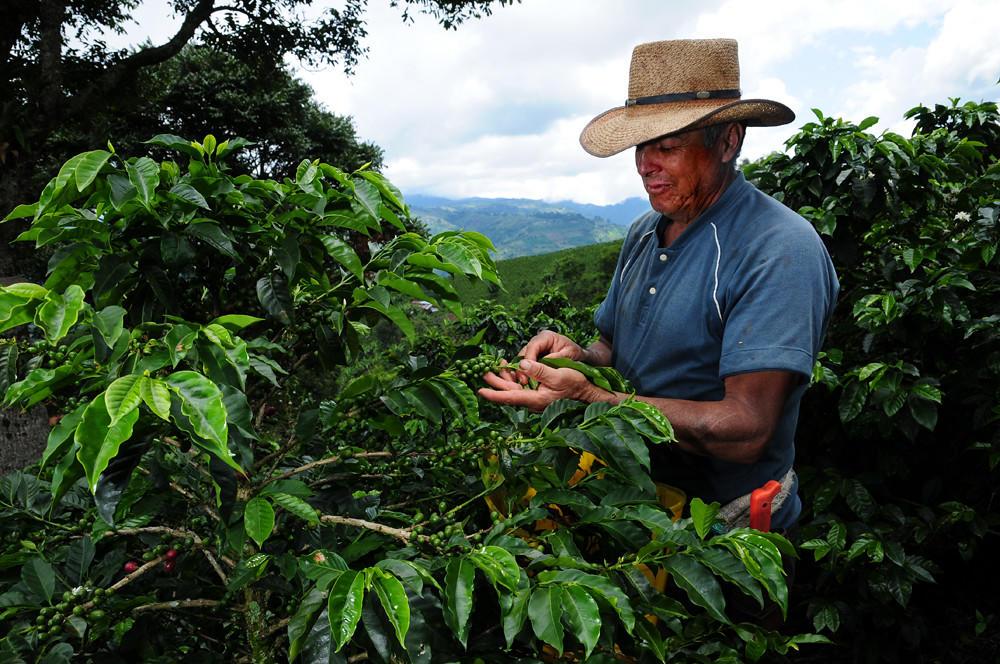
INSTITUTIONAL CASE STUDY: Climate services
The Alliance provided technical backstopping in the Philippines Bicol Region to collect information such as cropping calendars, historical climate risks, and initial risk responses. The resulting scalable climate information service platform is now operational in six provinces.
Submitted by

Jane Girly Cuerdo Balanza
Senior Research Associate – Geospatial Analysis and Data ManagementCOMMUNITY CASE STUDY: Agro-Climatic Bulletins
Adapting an approach first used in Latin America through "Local Technical Agroclimatic Committees" and multiple media, timely Agro-Climatic Bulletins have been disseminated to over 130,000 farmers in Vietnam’s Mekong Delta. A sample survey indicates that the use of this information has enabled farmers to significantly increase their rice yields and revenue.
Submitted by

Cornelis (Kees) Swaans
Senior Scientist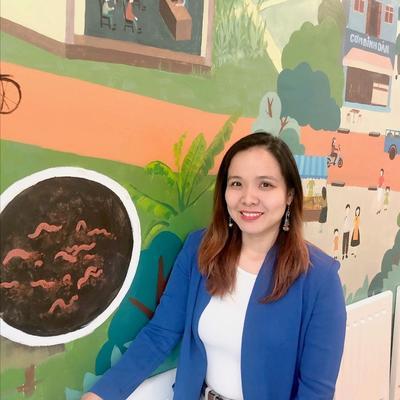
Angelica Carbonell Barlis
Research FellowPOLICY CASE STUDY: UN Biodiversity Negotiations
Informed by scientific evidence provided by CGIAR, the UN Convention on Biological Diversity has included, for the first time, a clear reference to the role of domesticated species diversity at the population level, the role of agroecological approaches for the sustainable use of biodiversity in agriculture, and has included means to monitor progress (Agrobiodiversity Index).
POLICY CASE STUDY: A Biodiverse Business Strategy
The Alliance, along with a regional NGO, supported the Regional Government of Ucayali, Peru, in forming a BioTrade Strategy. The plan aims to raise awareness on Amazonian native products, strengthen farmer organizations and institutions, and support local businesses.
Submitted by

Yovita Ivanova
Senior Manager